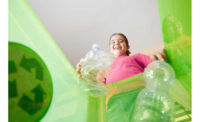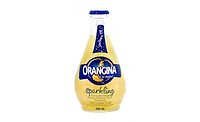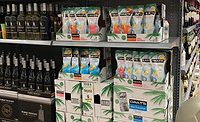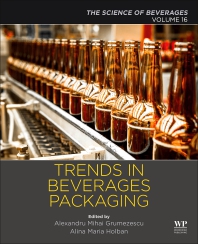Between Drinks
Responsible, sustainable brands win over consumers
Beverage brands take action to further their sustainable efforts

In its 2019 Retail and Sustainability Survey, New York-based CGS, a global provider of business applications, enterprise learning and outsourcing services, noted that more than two-thirds of the 1,000 Americans surveyed consider sustainability when purchasing products. In fact, respondents also are willing to pay 25 percent more for these better-for-the-environment products. Responding to this demand, beverage brands both large and small are implementing sustainable, eco-friendly processes and products, and tackling social responsibility on a variety of levels.
Brands taking action
In its 13th year, The Coca-Cola Foundation and national community improvement nonprofit Keep America Beautiful continue to organize and run the Keep America Beautiful/Coca-Cola Public Spaces Recycling Bin Grant Program. Because an estimated one-third of all beverage containers are consumed on-the-go, the program distributes public space recycling bins to 31 organizations in 19 states to increase recycling accessibility in more locations throughout the country, the company says.
However, this isn’t the only way the beverage market is tackling recycling. The American Beverage Association with The Coca-Cola Co., Keurig Dr Pepper and PepsiCo are working with the World Wildlife Fund to provide strategic scientific advice to help measure the industry’s progress in reducing its plastic footprint. These efforts are part of the Every Bottle Back initiative that was announced in
October 2019.
Another company, Stockholm, Sweden-based The Absolut Co. also is stepping up to the plate when it comes to sustainability. In 2020, the company plans to start reducing materials used in its PET bottles. Starting in April, its U.S. bottles will go from zero percent to 30 percent recycled materials, with the aim to expand efforts moving forward, the company says.
When it comes to its coffee packaging, Seattle-based Starbucks Corp., which operates more than 30,000 locations worldwide, announced it is shifting from single-use packaging to reusable packaging. It credits dialogue with nonprofit organization As You Sow, along with a shareholder proposal from Trillium Asset Management, for the shift. Starbuck’s other efforts include conducting research on promoting customer behavior change, developing new global reusable container goals, and cutting global packaging waste by 50 percent by 2030.
Another coffee chain, Oakland, Calif.-based Blue Bottle says it will seek to eliminate disposable single-use cups at nearly all of its 70 locations by the end of 2020.
Even the Feb. 2 Super Bowl LIV “played the game” when it came to recyclability by providing 50,000 recyclable aluminum cups to around 62,000 fans attending the Big Game at Hard Rock Stadium in Miami. The sustainability efforts were conducted in partnership with Ball Corp., concessions partner Centerplate and official beer sponsor Bud Light, with the goal of phasing out 99.4 percent of single-use plastics in 2020.
Joining the movement
Another approach to corporate social responsibility is B Corporation (B-Corp) certification. A host of food and beverage brands have already taken this important step, including Danone Waters of America, Bigelow Tea, Olympia Coffee, Rippl and New Belgium Brewing, to name a few. Benefits of certification include eliminating waste and redundancy; hiring and retaining talent; and becoming part of the B-Corp community, according to Jennifer Cantero, director of marketing and sustainability at the California-based business and accounting advisory firm Sensiba San Filippo.
“Going through the B-Corp process, brands look at business processes they haven’t examined since [they] started, which oftentimes helps streamline manufacturing or eliminate waste,” Cantero says. “I recommend brands look at the ‘we’ve always done it this way’ processes first. Going through certification, companies dig into manufacturing with a different perspective, which not only makes businesses run more smoothly, but also can save brands some serious cash.”
Along with optimizing operations in ways that positively impact the environment, Cantero says the benefits of becoming a certified B Corporation can be felt internally as well ― especially when it comes to resources used for hiring and retaining talent.
“Students are now starting to learn what B-Corps are in school and, after graduating, seek out B-Corp companies for employment,” Cantero explains. “While food and beverage companies hold a high percentage of the B-Corp community, within the food and beverage industry itself, it is still fairly low. This is a great differentiator for any company.”
Although the process can take nine to 12 months and the amount of data gathered can be time-consuming up front, Cantero says the resources put into the certification are worth it; cost-savings from eliminating waste, preventing employee turnover and growing the customer base compensates for the initial time investment. Cantero also suggests that starting down a scalable path of sustainability that can be verified and reported is timely.
“With the societal demand for doing business in a more sustainable way, B-Corp certification has gained momentum,” Cantero says. “Greta Thunberg’s UN plea last year seeped into many hearts, stirring a sense of urgency worldwide, and consumers are voting more at cash registers with their shift to eco-friendly products.”
Looking for a reprint of this article?
From high-res PDFs to custom plaques, order your copy today!







